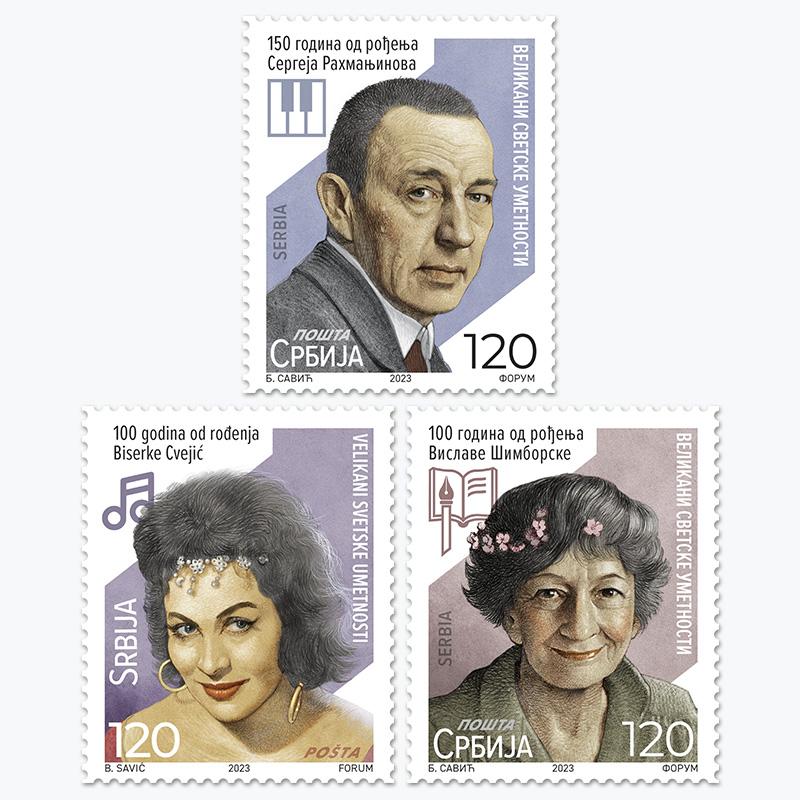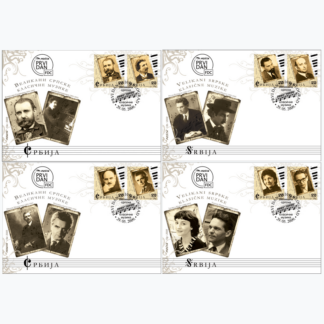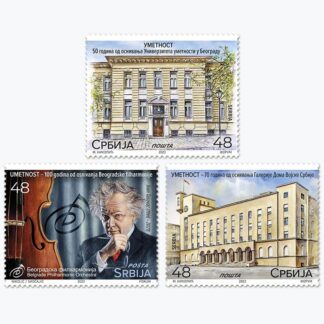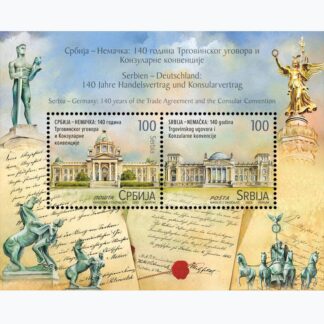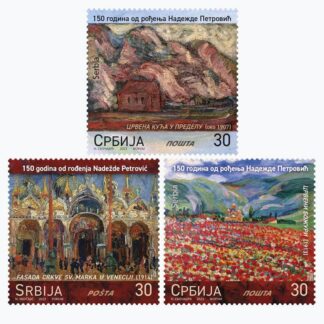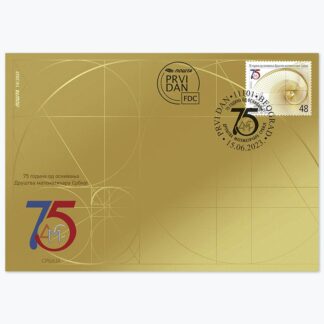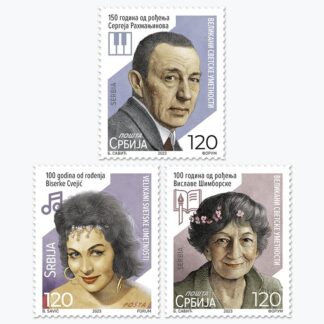Description
150 years since the birth of Sergei Rachmaninoff
Sergei Vasilyevich Rachmaninoff (Сергей Васильевич Рахманинов, Semyonovo, April 2, 1873 – Beverly Hills, March 28, 1943) was a Russian composer, pianist and conductor, who was a key representative of the romantic musical tradition and one of the most important composers of the 20th century.
Rachmaninoff gained fame and world recognition due to his virtuoso piano skills, fantastic sense of rhythm and legendary technical capabilities. In the opinion of many, he was the greatest pianist of the 20th century.
He started composing very early, already at the age of thirteen, at the age of nineteen he finished his Piano Concerto no. 1 (Op. 1, 1891), and his first symphony, Symphony no. 1 (Op. 13, 1896), he composed in 1896. He began his career as a conductor in 1904 at the Bolshoi Theater.
Sergei Rachmaninoff’s life encompassed challenging periods, including the turbulent events in Russia and the October Revolution. He moved from Russia in 1908, first to Italy, then to Germany and then to the United States, where he gained popularity after a very successful tour in 1909.
The rich author’s oeuvre of Sergei Rachmaninoff – among other things, four piano concertos, three symphonies, two piano sonatas, three operas and several choral works, is marked by deep emotional power, complexity and virtuosity in the best tradition of late romanticism, which is why his most famous works, including “Rhapsody on the Theme of Paganini” and “Second Concerto for Piano and Orchestra” are considered the pinnacle of romantic music.
Sergei Rachmaninoff’s musical work marked an entire era, and his overall artistic and performing work marked the music of the 20th century.
100 years since the birth of Biserka Cvejić
Biserka Cvejić (born Katušić; Krilo, November 5, 1923 – Belgrade, January 7, 2021) is one of the most significant and respected opera singers of our time. She left a permanent mark on the world of opera with her extraordinary talent, dedication to art and an impressive career that lasted for decades, during which she realized 77 mezzo-soprano roles in nearly 1,800 performances on stages around the world.
She began her professional career in the 1950s at the National Theater in Belgrade, quickly gaining a reputation for her powerful, emotional interpretation of roles. At the invitation of Herbert von Karajan, in 1961 she accepted an engagement at the Vienna Opera and worked with him until 1979.
Her singing skills were appreciated all over the world. She performed at the Milan Scala, the Metropolitan Opera, the Paris Opera and all major opera houses in the world.
At the height of her career, in 1978, she retired from the stage and devoted herself to the education of young singers, first as a professor of solo singing at the Faculty of Music in Belgrade, and later at the Academy of Arts in Novi Sad. With her husband Dušan Cvejić, she published the book “The Art of Singing”, and her extensive and notable pedagogical work, through which she passed on her knowledge and experience to generations of young artists, had a lasting impact on the development of the opera scene.
The ability to convey deep emotions through music and impressive vocal technique have made Biserka Cvejić a favorite among opera lovers and a role model for many young artists.
Biserka Cvejić is the holder of the highest French decoration, the order of the Legion of Honor and the lifetime achievement award “Dositej Obradović”. Her huge role in the popularization of opera in Serbia and the promotion of local talents contributed immeasurably to the cultural identity of our country. She passed away on January 7, 2021 in Belgrade.
100 years since the birth of Wisława Szymborska
Wisława Szymborska (Maria Wisława Anna Szymborska; Bnin, July 2, 1923 – Krakow, February 1, 2012), Polish poet, essayist and translator, winner of the Nobel Prize for Literature, is one of the most original and important contemporary Polish writers whose work is characterized by intelligence, deep introspection and imagination.
She started creating very early, even in her teenage years. She published her first collection of poems, “Dlatego żyjemy” (“That’s why we live”), in 1952.
Among her most significant works are the collections of poems “Wołanie do Yeti” (Cry of the Yeti, 1957), “Sól ziemi” (Salt of the Earth, 1962), “Wiersze wybrane” (Selected Songs, 1967), “Sto pociech” (One Hundred Consolations, 1967), “Czarny pasek” (Black Ribbon, 1976).
Through her verses, Szymborska explored the paradoxes of human existence, asking questions about the meaning of life, love and art. Deeply introspective, intellectually sharp and very skilled in wordplay and imaginative use of language, Szymborska wrote poetry rich in humor, which makes reading her poems a real pleasure.
She received the Nobel Prize for Literature in 1996, “for her poetic imagination that illuminates social reality with sarcasm.” Her works have been translated into almost all European languages, Arabic, Hebrew, Japanese and Chinese. Although her poetic oeuvre was not too extensive, the unique poetic expression with which she shrewdly illuminated the essence of human experience made Wisława Szymborska’s work leave a permanent mark on the Polish and world literary scene.
Expert collaboration: ”Svetozar Marković” University Library, Belgrade
Artistic realization of the issue: Boban Savić MA, academic painter
Graphic realization: MA Nadežda Skočajić, Academic Graphic Artist
